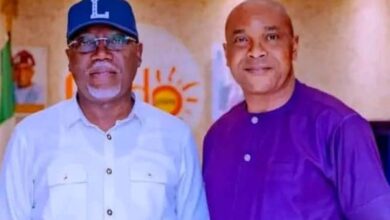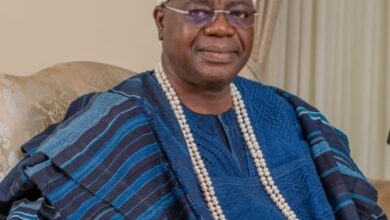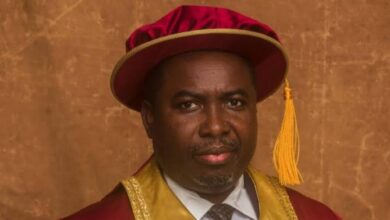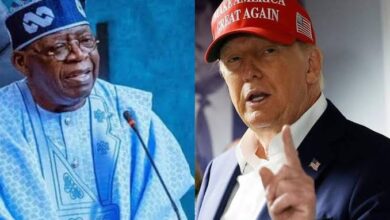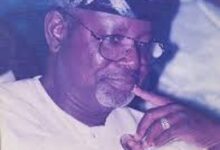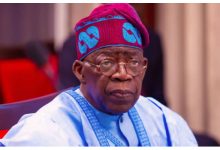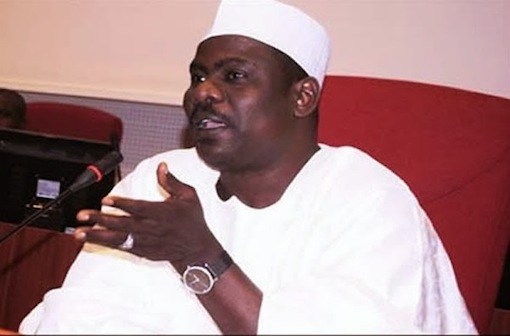Nigerian new Constitution ready in March 2017— Dep. Speaker
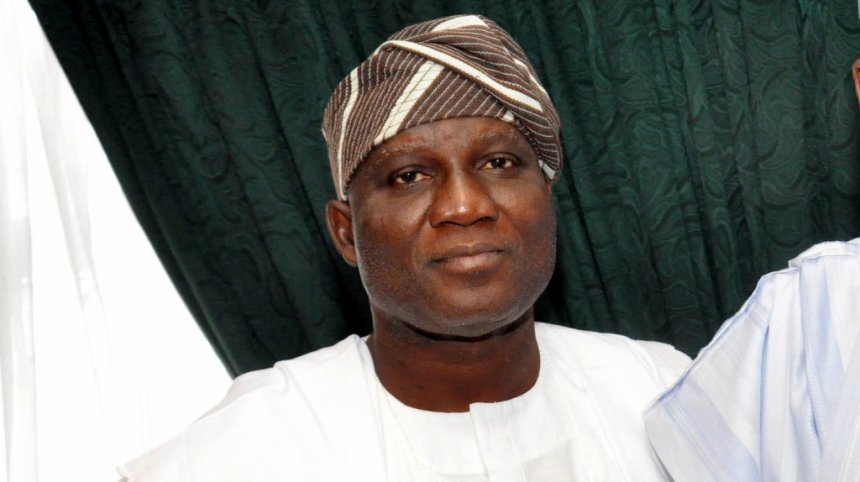
*As Bola Ajibola, Governor Amosun speak
“We never had recession, we never had oppression, we never had depression. It is now happening. Easy money is no longer there. It is now a necessity that we must work on what we can get from our sweat. Easy money is no longer in the country, stealing money and corruption must find their way out,” Said Prince Bola Ajibola (SAN)
A new Constitution will be ready in March 2017, Deputy Speaker of the House of Representatives, Honourable Yussuf Lasun, has said.
The Deputy Speaker, who is also Chairman, House Ad-Hoc Committee on Constitution Amendment, Yussuf Lasun, had said that, in the meantime, to make the ongoing constitution amendment process more flexible and practicable, the 4th Alteration Bill had been segmented into 14 Bills, while the House was considering over 30 Bills referred to the Committee by the 8th Assembly.
Speaking at the opening ceremony of a working session/retreat of the House Committee on Constitution review in Abeokuta, Ogun State, Lasun disclosed that issues of legalising same sex marriage, demand for more in the scheme of things and access to control of resources as well as local government creation would top the agenda in the alteration process.
The Deputy Speaker further stated that part of the assignment of the committee was to conclude work on the 4th Alteration Bill that was started by the 7th Assembly and also process all other proposals for further alteration of the constitution as may be necessary on behalf of the House or as referred to it by the House.
He said, “It pleases me to inform you that the Committee has been working tirelessly to ensure that the Fourth Alteration Bill is given speedy passage and subsequent assent by the President.”
He explained that efforts made by previous assembly in ensuring a successful amendment of the constitution that would have contributions from the Nigerian people were thwarted because the process started late about the third year of four year tenure, stressing that it was in a bid to avoid the mistakes of the previous attempts that made the leadership of the eighth assembly to start the process early enough.
He said, “we will round off our work between February and March (next year) to give the President ample time to go through the amendment for his assent.
“In order to make the amendment process more flexible and practicable, the 4th Alteration Bill has been segmented into 14 Bills and we are presently considering over thirty (30) Bills referred to the Committee by the 8th Assembly.
“Having considered the reasons why the Alteration Bill in the 7th Assembly was declined by the President, we have decided that the process should commence de-novo and fast-tracked to ensure a timeous passage of the Bills.
“Some contemporary issues for constitutional review are the issues of legalising same sex marriage which has been the subject of debates in several jurisdictions of the world.
“The demand for more in the scheme of things and access to control of resources has led to increased violence, hostage taking and disruption of the activities of the oil industry- the mainstay of the country’s economy.
“These conflicts are traceable in many respect to dissatisfaction by different groups within the geopolitical configuration with the distribution of power particularly, control over natural and fiscal resources within the federal structure. The balance of power is said to be too heavily tilted in favour of the central government.
“The issue of local government creation and the constitutional conflict it has generated in the operations of the 1999 constitution have shown that whereas the constitution provides for creation of new local governments and provides a precede re by which the states can undertake same, the fact that no state has been able to complete the process under the constitution is a sign of failure or undue rigidity, perhaps or indeed, both.
“Some of the scandals associated with some individual judges, their judgments and what may be termed questionable motives, have raised questions about the underlying policy considerations that come to play in the appointment of judges.
“A lot of issues have arisen in relation to the electoral process. The need to establish a credible time limit for the conclusion of election petitions. What are the constitutional implications of the executive team ticket? At what point does it actually begin in the light of the conflict in Kogi?”
In his remarks, the Speaker, Yakubu Dogara, who was represented by the Majority Leader of the House, Mr. Femi Gbajabiamila, told the committee to continue to engage in full consultation with the senate and where possible hold joint activities, adding that, “after dealing with agreed issues on constitution review, we may start discussion on possible amendment of contentious areas of the constitution.
“The issue of local government funding, functions, structure and elections should be reformed if we will make progress as a nation. Happily, at the last botched constitution review, twenty States voted to allow financial and structural autonomy for local governments. If we got the buy-in of four more states, it could have been achieved, so we should not give up.”
No easy money, stealing, corruption must now be out – Bola Ajibola
In his presentation, the guest speaker and a former Attorney General of the Federation, AGF, and minister of Justice, Prince Bola Ajibola, SAN, lamented that the country in its existence had witnessed some of the things it never had before.
Prince Ajibola whose presentation was, “The imperative of Constitution review/amendment in nation building” said, “we never had recession, we never had oppression, we never had depression. It is now happening.
“Easy money is no longer there. It is now a necessity that we must work on what we can get from our sweat. Easy money is no longer in the country, stealing money and corruption must find their way out.
“The most important aspect is that the constitution will need to be adjusted, corrected to fit in, in the drastic situation we have now. We never had it so bad like this. We have to look into the constitution particularly, as it concerns our economy.
“A lot of people are being retrenched, a lot of people are without any jobs. By hooks or crooks, we should try to find means of livelihood. We must find a situation that the constitution solves these problems.”
Why the clamour for constitution review persisted – Amosun
The Governor of Ogun State, Senator Ibikunle Amosun said it was noteworthy that the clamour for the review of the 1999 Constitution had become persistent at different fora by patriotic and well-meaning Nigerians of diverse background.
According to him, “As a matter of fact, recent events in our polity have not only made the review more urgent but also imperative. The intense calls for the review from all quarters are premised on the perceived imbalances and inadequacies of the 1999 Constitution which was put together to get the military out of power.
“Though, there have been several attempts to tinker with the 1999 Constitution, all have proved abortive due to the interplay of the entrenched interests, mutual distrust among the federating units and lack of political will on the part of the concerned political actors.
“But this time around, I have no doubt that this Ad-hoc Committee will not leave any stone unturned todo justice to the Constitution while taking into consideration the yearnings of the people. Being a legislator myself, having served my people at the Senate between 2003 and 2007, I quite understand and appreciate the onerous task before this Committee.
“However, I want you to take encouragement in the fact that you will be writing your name in gold if you succeeded in bequeathing to the nation an enduring legacy in the form of a Constitution that will address a large part, if not all, of the yearnings of our people.
“More importantly, it is my belief that the proposed review of the 1999 Constitution will provide a golden opportunity to resolve, once for all, those contentious issues like the Derivation Formula, Revenue Allocation, fiscal federation, State Creation, Resource Control, Local Government Creation by States, State Police, the perceived long-standing marginalization of the ethnic minorities and a few regions of the country etc.
“It will also present our countrymen and women a rare opportunity of making inputs into the Constitution to truly capture the terms of co-existence by the different nationalities that make up the country. Let me, however, sound a note of warning that whatever amendments we seek to do, it should be such that we ensure the indivisibility of the Nigerian nation.
“One irrefutable fact is that a lot of the challenges in the polity are readily blamed on the inadequacy of the 1999 Constitution. Perhaps, the major task before this Committee is the entrenchment of the tenets of true federalism.
“It is anticipated that at the end of the review exercise, we shall come up with an acceptable document that will not only bind us together as one indivisible entity, but will also serve as a blueprint for further socio-economic and political development of Nigeria.”


